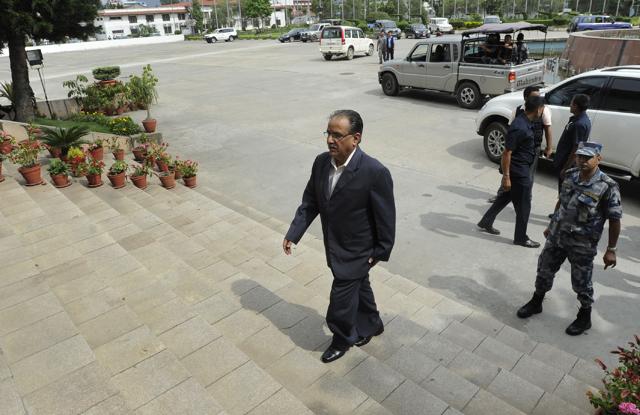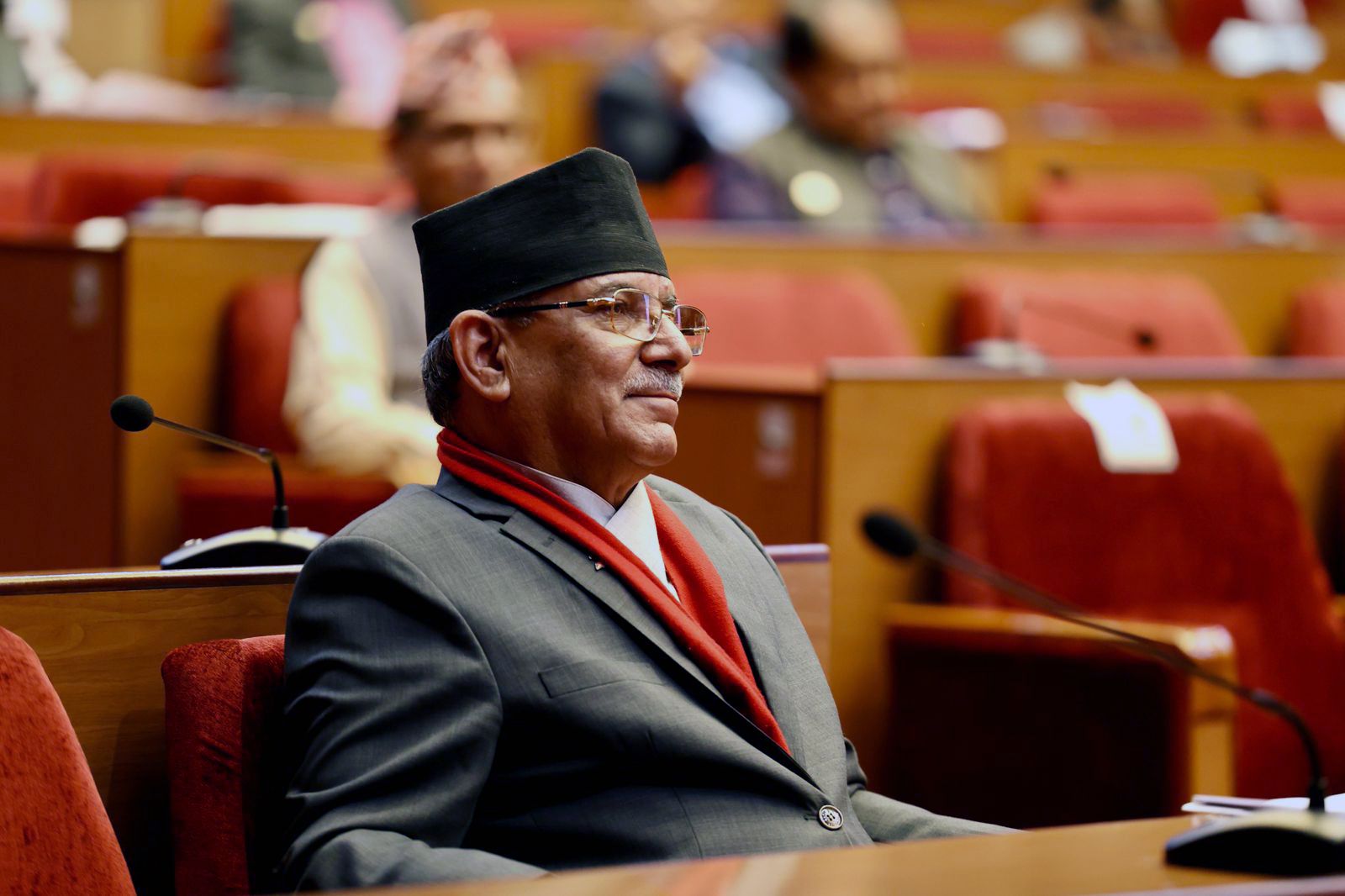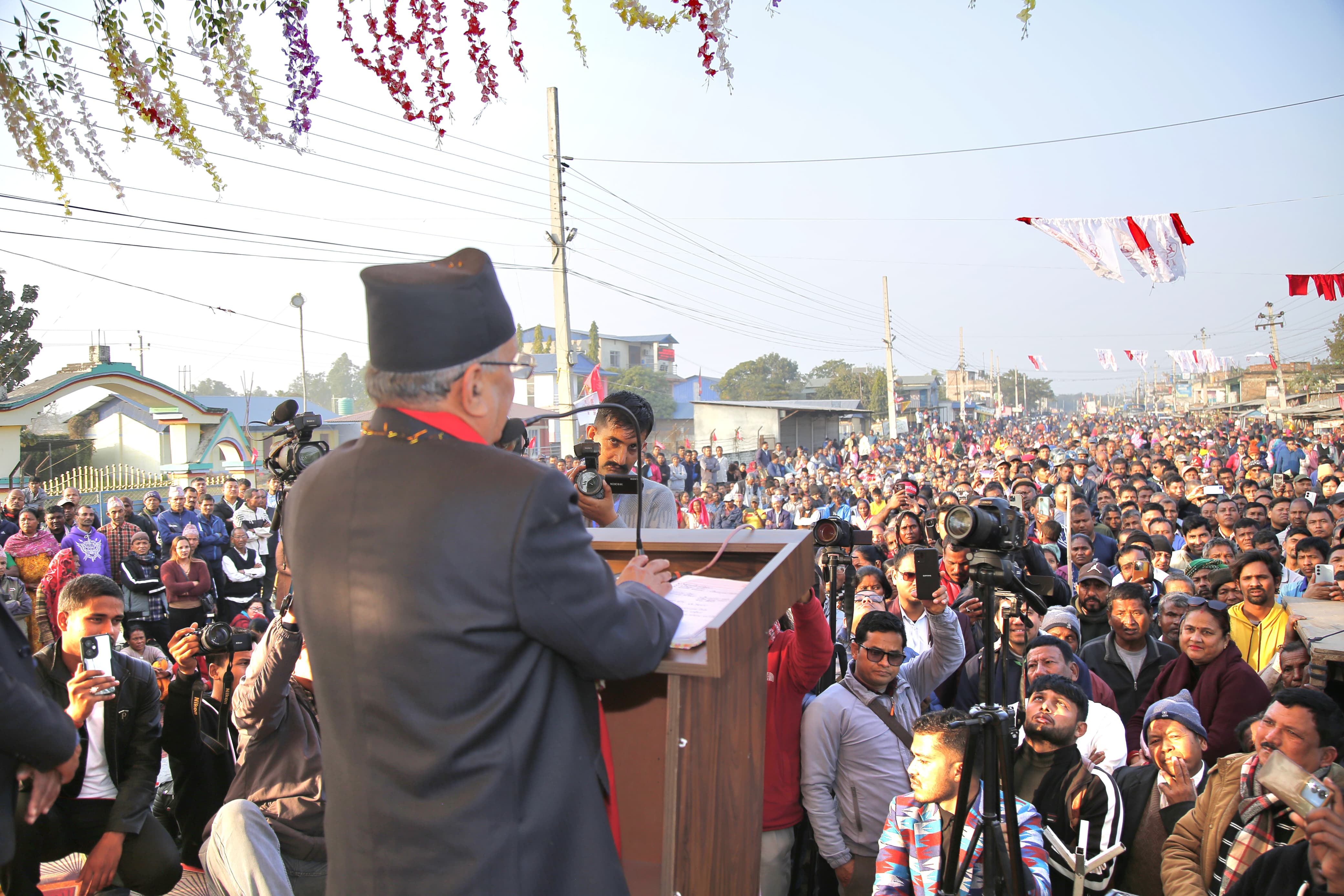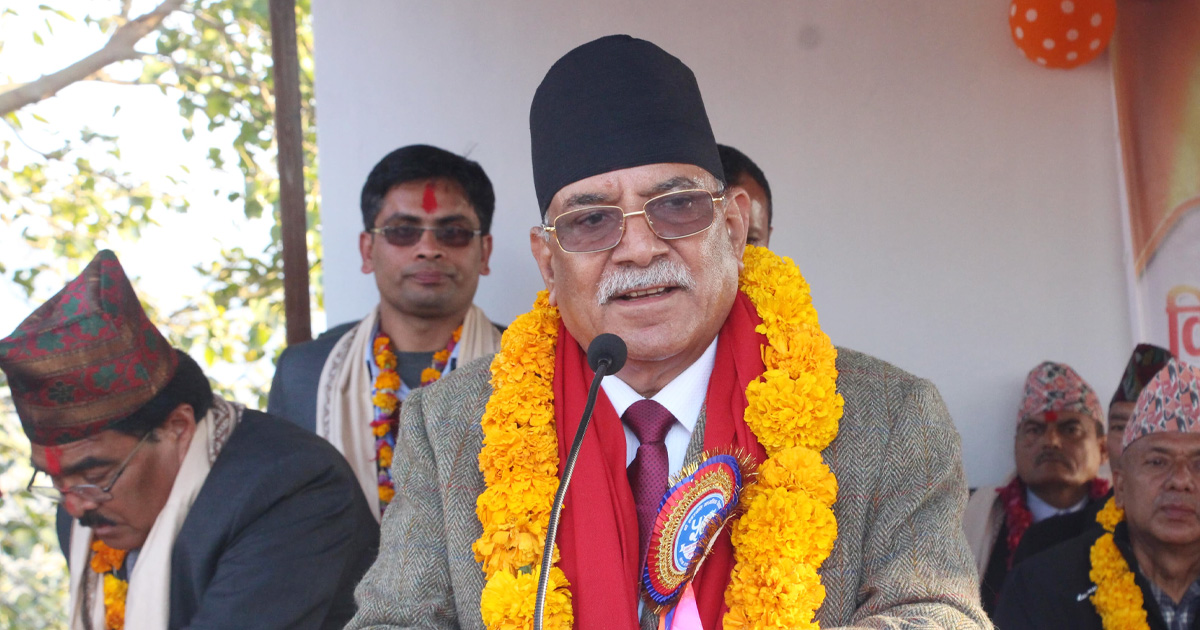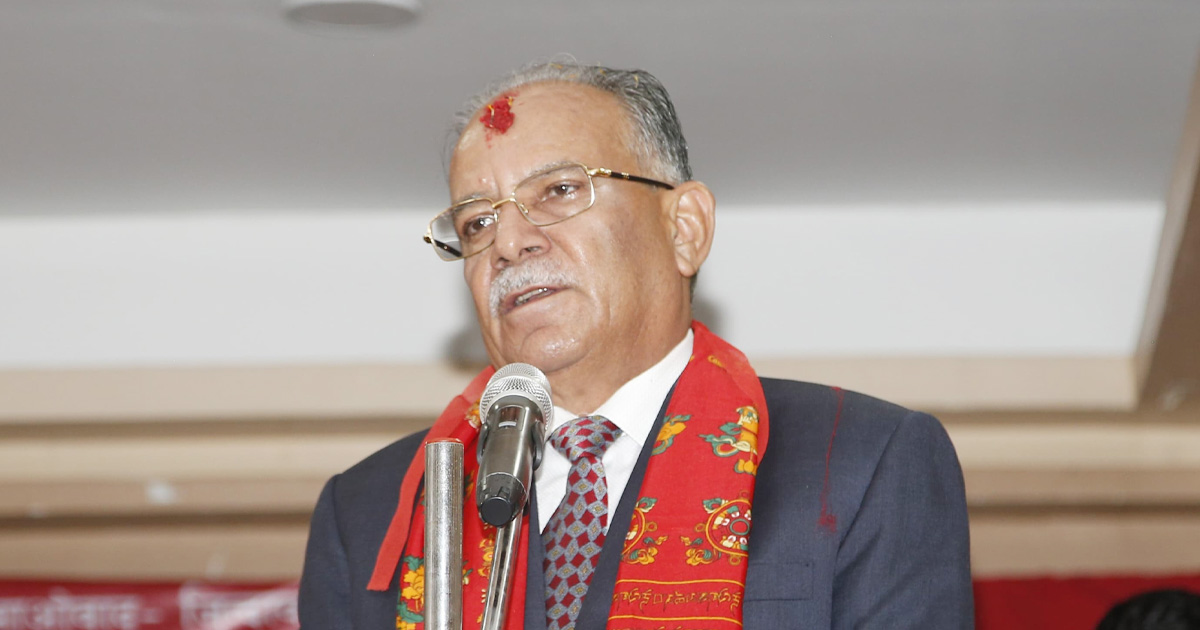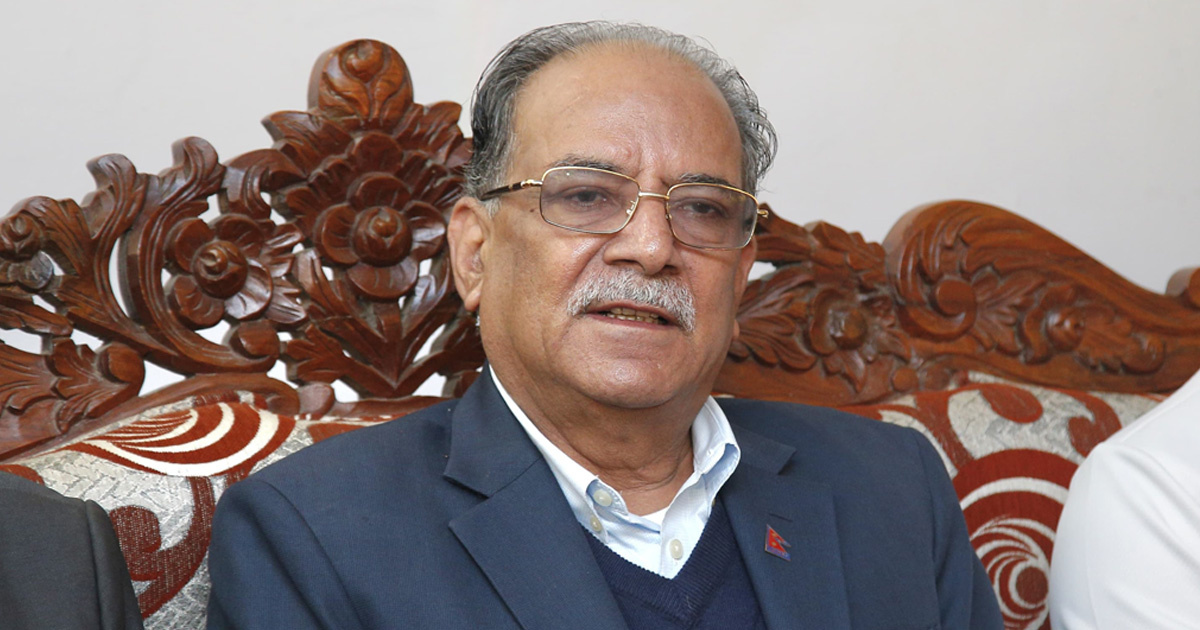Maoist chairman and the man slated to become Nepal’s next prime minister, Pushpa Kamal Dahal “Prachanda”, has said he would strive for balanced foreign relations with neighbours India and China. He added that Beijing too wants Nepal to have good ties with India, and China’s main concern was the role of western powers.
In an exclusive interview to Hindustan Times at his Kathmandu residence — his first to any media outlet since the process of government change began — he made a clear commitment that Nepal would not use one country against the other.
The 61-year-old leader emphasised the unique nature of Nepal-India relations, saying the southern neighbour is a stakeholder in the post-2006 political process of the Himalayan nation. But he warned New Delhi against political micromanagement, and underscored a perception that India took up development projects, but its delivery was weak.
His remarks came in the backdrop of contentions that the outgoing KP Oli government tilted strongly towards Beijing to counter Delhi.
He said his priority would be concluding the peace process, especially the question of war-time cases; making the Constitution as widely acceptable as possible; and accommodating Madhesis and other communities.
Read | Does Nepal PM exit mean India’s patience paid off?

Khadga Prasad Sharma Oli shakes hand with Prachanda . The Maoist leader tells Hindustan Times his priority will be concluding the peace process. (Reuters)
Competitive democracy
Prachanda first became PM two years after ending a decade-long Maoist insurgency from 1996 to 2006. His party emerged as the single largest force in the 2008 elections; but within nine months of wresting power, he had to resign when other parties — and India — opposed his move to dismiss the army chief.
So how is the second stint going to be different?
The Maoist chairman said he made mistakes in the past, and there were now four major differences.
“Last time, I was inexperienced in the ways of competitive democracy. We still had a war mindset from the insurgency years. It took us 10 years of war to understand the nature and rules of war. Now, after 10 years in open politics, I have learnt the rules of competitive democracy. I have more experience and maturity.”
Second, at that point, the Maoist alliance with its key peace process partner, the Nepali Congress, had broken. “I could not take all parties along, especially NC and its late leader, Girija Prasad Koirala, who had signed the peace agreement with me.”
Prachanda recalled Koirala’s advice that if you lose your way in a jungle, it is best to go back to the starting point. “We got diverted, but I returned to the point of origin and roots now, and am in partnership with Nepali Congress.”
Three, Prachanda admitted that in his first stint, there was “lack of ideological clarity” in his party. The Maoists were torn between factions committed to the peace process and those who believed in protracted people’s war. This time, the leader said, there is fundamental unity and maturity in the party.
The fourth area of correction, for Prachanda, is ensuring good relations with neighbours.
Read | Nepal PM Oli’s departure marks an Indian comeback

Maoist chairman Prachanda (C) arrives at Parliament in Kathmandu on July 13. Nepal will not use one country against the other, Prachanda tells HT in an interview. (AFP)
Delhi dynamics
Back in 2009, it was a rift with India that eventually knocked down his government.
Prachanda said Nepal-India ties were unique, but in the past 10 years, ever since the peace process began which was facilitated by India, both sides had shown some weaknesses.
“It is for the Indian establishment to think about its record. But I can say from Nepal’s side, there is a need for balance. We have to take the transitional process to a logical conclusion. And for this, all stakeholders have to come together.”
Asked if this included India, his answer is a strong “Yes”.
When the Constitution was promulgated last year, Prachanda had disregarded Indian advice to pause the process to bring displeased parties on board. Instead, he resorted to a strong language on nationalism.
He explained, “Look, we were deeply concerned that the Constituent Assembly (CA) may not be able to write the Constitution. One CA had already failed. When India said stop the process, it was not possible. The CA members had already signed the Constitution. It is best if India does not get involved in this level of micromanagement.”
He criticised India when the economic blockade happened and there was a supply crunch. But Prachanda said he was not in favour of using these issues to prolong bitterness and build “feudal and narrow nationalism” geared against one country.
“Our geopolitics dictates we have to take a balanced view. As Maoists, we have been saying our challenge is to strengthen internal nationalism and respect all identities. Traditional, narrow nationalism is wrong.” This was a pointed critique at Oli, who has used ultra-nationalism targeting India.
The Maoist chairman spoke of the gaps in development cooperation. His agenda as PM this time would be economic development, infrastructure and employment generation.
He sought Indian assistance and, at the same time, highlighted the “perception that India takes up projects but does not work”.
“Take the Terai roads. It is pending for years. The kind of investment and volume of support we should see from a neighbour as close as India has not happened.”

KP Oli Sharma (R) and Maoist Chairman Pushpa Kamal Dahal, known as Prachanda, (C-L) shake hands during a Parliament session in Kathmandu. (AFP)
Beijing balance
There is a growing sense in New Delhi that Nepal had been inviting greater Chinese role to counter India. But the Maoist leader allayed fears, saying a chill in ties with India and new agreements with China in recent months may have given that impression.
“But China does not want to turn Nepal against India. I have been speaking to top Chinese officials for 10 years now and they have always maintained that we should have good ties with India.”
The Chinese interest was in Tibet, which shares a long border with Nepal, and that is why it keenly watched Nepali politics and the role of foreign powers here.
“China’s main concern is not India here. It is western powers,” he said.
Prachanda cleared another perception that Beijing’s role in domestic politics had increased. “No one should get involved in micromanaging affairs in Nepal,” he said.
An impression may have gained ground, he said, because he changed his mind about withdrawing support to Oli in May and remained with the government. Many people suspected Chinese pressure. He clarified: “The Chinese preference was for Left unity, but there wasn’t any major pressure.”

Nepalese Maoist chairman Pushpa Kamal Dahal, known as Prachanda, (C), leaves the Parliament building in Kathmandu on July 24, 2016. (AFP)
Madhes roadmap
Prachanda laid out, for the first time, a two-phase roadmap to address Madhesi grievances. He said the first point of his seven-point understanding with the NC was about addressing aspirations of marginalised communities, including on the question of federal demarcation, having result oriented talks, reaching a political agreement and amending the Constitution.
The Madhesi parties of the Terai region, contiguous with India, voted with Prachanda against Oli, and will support the new government.
The Maoist leader recalled that he had recently gone to a Madhesi protest and felt he had returned home. “I led these issues. We established it. I have no problem understanding it. I helped create that psychology. I think my move has already made the marginalised communities enthusiastic.”
Prachanda said certain issues could be addressed through the cabinet, including compensation to the dead, taking care of the wounded, releasing prisoners, withdrawal of political cases. “We will do it unilaterally.”
He did not see any problems in revising citizenship provisions and ensuring proportional representation. Madhesi parties want foreign women married to Nepali men to get immediate citizenship.
“On the issue of demarcation, as PM, I have to bring all sides, including NC and UML. Here, we will have to look for a middle path. The first step, of amending some federal boundaries, can address the demands partly. This can create grounds for Madhesi parties to participate in elections. The next phase can address the other demands around boundaries.”
He did not spell it out, but the Maoist chairman hinted at the possibility that hill districts can be removed from a western Terai province in the first phase. This was politically easier to accomplish. But incorporating five other districts in the east and west may have to wait.
No blanket amnesty
A key issue that remains incomplete in the peace process is justice and reconciliation. Prachanda is often reported to be insecure about his own future and that of his cadre. A Truth and Reconciliation Commission has begun work, but there are obstacles.
When asked what was holding it up, Prachanda said: “The first issue is of principle. Should war cases be treated under criminal law or a special transitional justice process? Our peace accord is clear; all cases must go to the TRC and Disappearances Commission.”
Maoists want a law which will ensure this, to override a Supreme Court judgment which allows cases already in courts to be pursued there.
Was he seeking blanket amnesty for all crimes that would be dealt by the TRC, as many in the human rights community suspect? “No. We have never asked for blanket amnesty. We are not saying forget and forgive. If there are serious crimes, they can be prosecuted. This can be in representative cases both when violations were committed by us and by the state security forces.”
This, Prachanda said, would be a symbolic measure, as the focus should be on reconciliation.
Cited : Hindustantimes
 क. प्रचण्ड
क. प्रचण्ड
